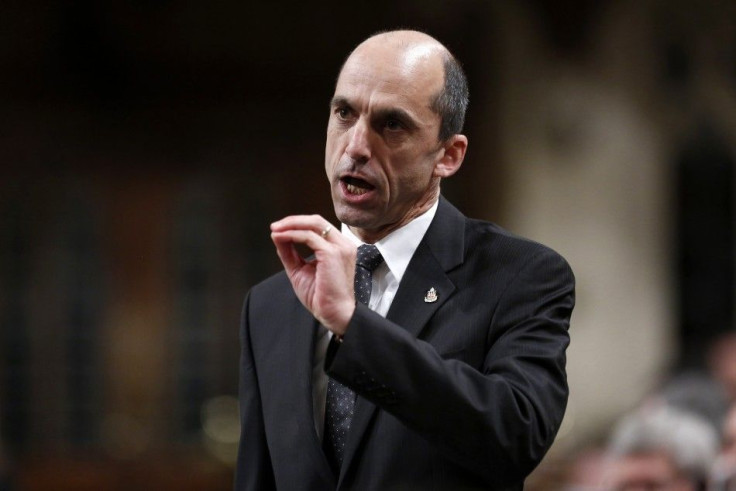Canada Successfully Stops 150 Sex Offenders From Crossing The U.S.–Canada Border, Deports 51 Other 'Dangerous Individuals'

A program dubbed "Wanted by the CBSA (Canada Border Services Agency)" has helped the country effectively deport 51 "dangerous individuals," Public Safety Minister Steven Blaney said on Monday. Another program, in coordination with the United States customs, has stopped over 150 U.S. sex offenders from crossing the U.S.–Canada border.
The "Wanted by the CBSA" program was established in 2011. According to Blaney, in the last 12 months alone, the program has helped identify over 30 criminals wanted for various crimes.
Blaney spoke during a news conference at Pierre Elliott Trudeau International Airport that they were able to identify and intercept the criminals through the information supplied by the Canadian population. A special border watch phone line—1-888-502-9060—had since been created to help the CBSA track down the individuals in its wanted list.
The misdemeanours of those in the wanted list range from drugs to organised crime and possibly war crimes. He said it is also highly possible that some may have had a terrorist past. The mug shots of these people were posted online. As of this writing, 18 men can be found on the CBSA's online list.
One of the people on CBSA's current list is Gustavo Alfredo Henriquez Aruguijo, a 58-year-old man from Honduras whose last known address was in Montreal. Another is 43-year-old Abdirahman Moumin Okie, who is also known to have lived in Montreal. The list can be viewed at the link: www.cbsa-asfc.gc.ca/wc-cg/menu-eng.html.
The sex offenders were caught when officers between the CBSA's National Targeting Centre and the American law enforcement organisation that shares the same name had an exchange of officers. The movement enabled all law enforcement authorities to act on a "reinforced partnership" that streamlined the sharing of information. The exchange was part of a 2011 agreement Beyond the Border agenda signed by Prime Minister Stephen Harper and President Barack Obama.
Tips by U.S. Customs and Border Protection in 2014 of sexual offenders travelling to Canada led to 59 instances where entry was refused at the border. "This statistic paints a vivid picture of our efforts to protect Canadians and their families from the threat posed by dangerous criminals," Blaney said.





















